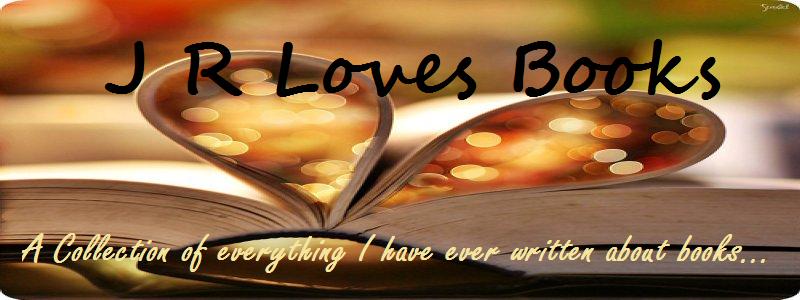Our Moon Has Blood
Clots :
The Exodus of the Kashmiri Pandits
by Rahul Pandita
Hardcover, 256 pages
Published on: January 22nd 2013
Publisher: Random House India
ISBN: 9788184000870
After having read
and loved Basharat Peer’s memoir on Kashmir- Curfewed Night four years ago, I
couldn’t wait to get my hands on Rahul Pandita’s Our Moon Has Blood Clots when
I heard about it. And the young Kashmiri in me never lets go any opportunity to
know of the times my land and its people have gone through.
The book, Our
Moon Has Blood Clots, as the blurb says is a memoir of a young Kashmiri Pandit,
who was forced to leave his land, his home- Kashmir in the turbulent times of
1990. It was the time, as Pandita says in the book, when people would say that
they’d collect the next ration in Pakistan. The time people saw Azadi at the
threshold. The time insurgency had set its foot in the land of Kashmir too
strongly. The time when most of the Kashmiri Pandits had to leave everything
behind and find a safer place for their lives.
The book,
primarily tells a heart wrenching tale of these Kashmiri Pandits. By giving us
the details of his firsthand experiences, he explains the wrath the community
had to face in general, here in Kashmir and out of it. It explains how the
situation compelled the Pandits to leave the valley and how after being
disowned in Kashmir, they weren’t even accepted in Jammu, a place they had
eventually pinned all their hopes to. No doubt the memories of the city leave a
bitter taste in the writer’s mouth, or for that matter any Pandit who was
looked down upon by the native Jammuites. After more than twenty years of the
exodus, the Pandits might have even left Jammu and got virtually settled in the
other parts of the world, they still long for the feel of home, of Shahar, of
the land they belong, of Kashmir. It is important to mention that the writer
also talks of the Pandits who still live in Jammu due to a multitude of circumstances,
of the families that chose to stay in the valley when everyone was leaving, and
the ones who decided to come back after some time.
The thing that
you notice right from page one is that Pandita has written the book
marvellously. Though a memoir, it reads like a novel. Days ago I was saying
that I hated books without many dialogues, and days later I loved reading Our
Moon has Blood Clots. Even for the ones who aren’t much into nonfiction, the
book will keep them gripped. The beauty and mastery with which Pandita has put
together the pieces is absolutely worth applause.
Though, I could
identify with many a thing Pandita says in his book, there were certain things
that found it too hard to sink in. One of these, and a major one, is that it
shows the Muslims in Kashmir as utterly lecherous and lascivious, giving a
truly very wrong concept about them to the people who live outside the vale.
This hit me right at the moment he talks of a speech made by Indira Gandhi in
Srinagar and the ‘completely indecent’
acts the men did to show their disrespect. I found it too hard to believe this
fact, even if it is a fact, I doubt. He also says that the guys of his
locality, just as the exodus was taking place, were eying their houses and
their women. I might even believe the former, but the latter would still
take time to sink in. The thing that seemed absolutely laughable was the point
where he says that one of these very guys at the very moment, did some actions,
imagining to rape a girl of one of the houses they eyed and then having an
orgasm! Come on Mr Pandita, you were just a fourteen year old at the moment! I
still wonder, if even in today’s Kashmir a fourteen year old would know what an
orgasm is. This was the point I felt that Pandita might truly have fictionised
the reality to some extent. Or, the science is absolutely correct saying that
memory can easily get distorted.
Talking of
memory, if we compare the Our Moon Has Blood Clots with Curfewed Night, the
major difference is that Basharat Peer doesn’t just dwell on his memory. He
gives us every little detail of how he gathered the facts that he puts before
us in the book, on his re-visit to Kashmir. While as Rahul Pandita just keeps the
facts in front of us, not telling us anything about where he got them from. As
a neutral reader, without knowing the source of the information, I find it hard
to figure out which one to believe.
One last thing
that I didn’t like about the book is that it pictures almost the entire Muslim
community of the valley as villains. I know the Pandits had faced a lot at the
hands of the black sheep of the community and it would naturally make the
Pandits hostile to the whole lot of Muslims here. But once you’re writing a
book, and picture the entire community as bad, I think it isn’t justified. It
is as if he’s taken out the frustrations of a fourteen year old against the
community in the book.
Overall, the book
is totally worth your time. It is filled with emotions. By the end of the book,
your heart will ache for a long time if you read it as an unbiased reader. But sadly, you wont know how much of it is truth. Which I believe, must not be a great much.



No comments:
Post a Comment